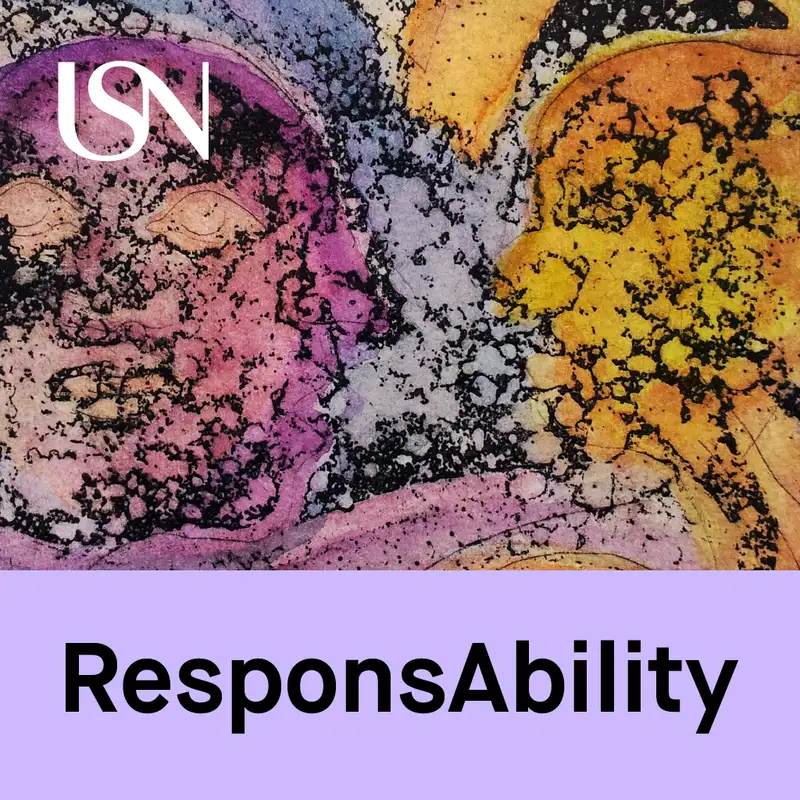#15 Carol Gilligan | Democracy - The Opposite of Patriarchy
TRANSCRIPT SUMMARY
(This transcript summary was AI-generated and then edited by the podcast hosts for quality assurance)
#15 CAROL GILLIGAN | DEMOCRACY – THE OPPOSITE OF PATRIARCHY
- a podcast dialogue with Michael Noah Weiss and Guro Hansen Helskog
INTRODUCTION
In this rich and wide-ranging episode, renowned psychologist and ethicist Carol Gilligan speaks with hosts Michael Noah Weiss and Guro Hansen Helskog about moral voice, care ethics, and the ongoing struggle against patriarchal structures. From her seminal work In a Different Voice to her current reflections on education, responsibility, and democracy, Gilligan invites listeners into a conversation grounded in both personal experience and critical thought.
LISTENING FOR A DIFFERENT VOICE
Gilligan begins by reflecting on how she came to study women’s moral reasoning—not as a feminist project per se, but as a response to what she heard in real-life moral dilemmas. Initially planning to study male college students facing the Vietnam draft, her research pivoted when Roe v. Wade was decided. She began listening to women making decisions about abortion—not to generalize about gender, but to understand how people reason through emotionally charged, morally complex situations.
What she discovered was a different moral voice: one centered not on abstract principles like justice, but on relationships, care, and responsibility. These voices had been previously ignored or misinterpreted as deficient. Gilligan’s insight was that they were not wrong, just different—and deeply human.
THE ABORTION STUDY
Gilligan notes that while In a Different Voice became widely influential, the abortion study that inspired it remained underacknowledged. In that research, she saw how women often viewed both possible choices—terminating or continuing a pregnancy—as “selfish,” reflecting a cultural tendency to teach women to downplay their own needs. But many began to ask: “Why is it selfish to care for myself?” This moment of reflection marked a reclaiming of moral agency and self-respect.
FROM JUSTICE TO CARE
Gilligan’s work is often seen in contrast to that of Lawrence Kohlberg, whose stages of moral development emphasized justice. She clarifies that they were not adversaries—Kohlberg initially welcomed her perspective—but their paths diverged when Gilligan argued that care-based reasoning wasn’t a deviation from his model but a fundamentally different paradigm.
For Gilligan, morality rooted in care means being present, listening closely, and responding to the needs of others without abandoning oneself. Responsibility, then, is relational—it involves awareness of the impact of our choices on those around us and a willingness to stay engaged, even when no option is free from harm.
EMBODIED KNOWING AND THE POWER OF INTUITION
Gilligan challenges the common dismissal of intuition—often gendered as “feminine” and irrational—as she describes it instead as a form of embodied knowledge. Drawing on the work of neuroscientist Antonio Damasio, she explains how our emotions and bodily responses often register truth before our conscious minds catch up. Yet educational systems typically teach children to disconnect from this kind of knowing.
Reconnecting with embodied experience, Gilligan argues, is not just personally vital—it’s politically urgent. The human voice, especially when grounded in lived experience, is a crucial force for democratic life.
TEACHING FOR PRESENCE AND RELATIONAL AWARENESS
When asked how professional education—particularly teacher education—might take intuition seriously, Gilligan offers a deceptively simple response: “Pay attention.” Cultivating presence in our bodies, in our relationships, and in the world around us is a moral and pedagogical practice. It requires not just intellectual training, but emotional and relational courage.
PATRIARCHY, SILENCE, AND RESISTANCE
The conversation turns to Gilligan’s recent work on the resurgence of patriarchy. She describes patriarchy not as outdated tradition but as a powerful cultural system built on hierarchy, silence, and the suppression of empathy. Within this context, the human voice—especially when it speaks from lived experience—becomes an act of resistance.
Democracy, by contrast, is founded on the idea that every voice matters. When people—particularly women—speak honestly about their lives, they interrupt patriarchal power structures. But this is not easy: patriarchy doesn’t only rely on male dominance; it also depends on women’s silence.
WHY WOMEN SUPPORT PATRIARCHY
In response to a challenging question about why some women support patriarchal figures, Gilligan draws on her long-term studies of girls. As girls move into adolescence, they often begin silencing what they know, trading honesty for social acceptance. They learn to be “nice” rather than real—a “bad bargain” that costs them their voices and contributes to broader patterns of disempowerment.
BREAKING THE BARGAIN: A NEW VISION FOR EDUCATION
Gilligan argues that education must help children resist this silencing. Rather than enforcing conformity to gender roles, schools should support young people in staying present with themselves and others—especially in moments of conflict. This kind of moral education equips students to speak truthfully, stay connected, and act responsibly in an interconnected world.
CONCLUSION
Carol Gilligan’s conversation offers a compelling reimagining of responsibility—not as rule-following, but as relational awareness rooted in care and attentiveness. Her work continues to challenge systems that prioritize hierarchy and detachment, and instead calls for an ethic of presence, voice, and connection. For educators, students, and all who care about democracy, her message is both timely and deeply inspiring.
